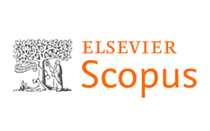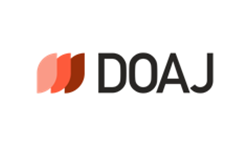МІЖНАРОДНА КОНКУРЕНТОСПРОМОЖНІСТЬ ТУРИСТИЧНОГО СЕКТОРУ ГРЕЦІЇ
Ключові слова:
в’їзний туризм, економіка Греції, Індекс розвитку подорожей і туризму, конкурентоспроможність, міжнародний маркетинговий SWOT-аналіз, подорожі.Анотація
У статті досліджено важливість міжнародної конкурентоспроможності в туристичному секторі під час періоду відновлення після кризи, зумовленої пандемією коронавірусу у 2020 р., зокрема конкурентоспроможності індустрії подорожей і туризму в Греції. Тенденції в динаміці кількості прибуттів туристів і надходжень від в’їзного туризму та закладів розміщення засвідчують потужний розвиток грецького туристичного сектору в допандемічному періоді, його глибоку кризу в 2020 р., а також швидке відновлення впродовж наступних 2 років завдяки заходам державної підтримки. За результатами порівняльного кореляційного аналізу двох вибірок (глобальної та регіональної), з’ясовано фактори, які суттєво вплинули на відновлення відносної конкурентоспроможності експорту туристичних послуг у 2019–2022 рр. Регресійний аналіз підтвердив значущість факторів зростання інтересу до культурних пам’яток, екологічної сталості, відсутності організованого насильства та ефекту заміщення в’їзного туризму вітчизняним; на його основі також зроблено висновок про нетиповий ефект зростання ємності засобів розміщення упро довж періоду післякризового відновлення. SWOT-аналіз туристичного сектору Греції, виконаний на основі Індексу розвитку подорожей і туризму, виявив більше сильних сторін і можливостей, ніж слабких сторін і загроз. Сильними сторонами є торговельна та фінансова відкритість, безпека, розвинена туристична та медична інфраструктури, приватні та державні інвестиції в сектор, а також висока продуктивність праці в готелях і ресторанах, а до головних недоліків належать високі ціни, сезонність і деякі інші проблеми.
Класифікація за JEL: Z33, Z32, M31, D41.
Посилання
Anastasiou, D., Drakos, K., & Kapopoulos, P. (2022). Predicting international tourist arrivals in Greece with a novel sector-specific business leading indicator (MPRA Paper No. 113860). University Library of Munich. https://mpra.ub.uni-muenchen.de/113860/1/MPRA_paper_113860.pdf
Balomenou, Ch., Lagos, D., Maliari, M., Semasis, S., & Mamalis, S. (2021). Tourism development in North Greece: Contributions to economics. In G. Karanovic, P. Polychronidou, A. Karasavvoglou, & H. Maskarin Ribaric (Eds.), Tourism management and sustainable development (p. 5–26). Springer, Cham. https://doi.org/10.1007/978-3-030-74632-2_1
Belias, D., Trivellas, P., Koustelios, A., Serdaris, P., Varsanis, K., & Grigoriou, I. (2017). Human resource management, strategic leadership development and the Greek tourism sector. In V. Katsoni, A. Upadhya, & A. Stratigea (Eds.), Tourism, culture and heritage in a smart economy (p. 189–205). Springer Proceedings in Business and Economics.
Chaitip, P., Chaiboonsri, Ch., Kovacs, S., & Balogh, P. (2010). A structural equation model: Greece’s tourism demand for tourist destination. Applied Studies in Agribusiness and Commerce, 4(1-2), 1–9. https://doi.org/ 10.22004/ag.econ.91116
Chen, J., Balomenou, Ch., Nijkamp, P., Poulaki, P., & Lagos, D. (2016, August 23–26). The sustainability of yachting tourism: A case study on Greece [Conference Paper]. In Cities and Regions – Smart, Sustainable, Inclusive?: 56th ERSA Congress. European Regional Science Association. Vienna, Austria. https://www-sre.wu.ac.at/ersa/ersaconfs/ersa16/Paper293 _CBalomenou.pdf
Delitheou, V., Vinieratou, M., & Touri, M. (2010). The contribution of public and private investments to the growth of conference tourism in Greece. Management Research and Practice, 2(2), 165–178. https://mrp.ase.ro/ no22/f3.pdf
Dimitrić, M., Žiković, I. T., & Blecich, A. A. (2019). Profitability determinants of hotel companies in selected Mediterranean countries. Economic Research Ekonomska Istraživanja, 32(1), 1977–1993. https://doi.org/10.1080/ 1331677X.2019.1642785
Dionysopoulou, P., & Tsakopoulou, K. (2021). Policy responses to critical issues for the digital transformation of tourism SMEs: Evidence from Greece. In: V. Katsoni, & C. van Zyl (Eds.), Culture and tourism in a smart, globalized and sustainable world (p. 499–510). Springer Proceedings in Business and Economics.
Drakakis, P., Papadaskalopoulos, A., & Christofakis, M. (2017). Exploring the potential operation of a local tourism production system: The case of Messinia, Greece. Local Economy, 32(2), 110–128. https://doi.org/ 10.1177/0269094217693744
Eurostat. (n. d.). [All Datasets]. Retrieved July 22, 2023, from https://ec.europa.eu/ eurostat/web/main/data/database
Fountoulaki, P., Leue, M. C., & Jung, T. (2015). Distribution channels for travel and tourism: The case of Crete. In I. Tussyadiah, & A. Inversini (Eds.), Information and communication technologies in tourism 2015 (pp. 667- 680). Springer, Cham.
Goral, R. (2016). Tourism policy and enabling conditions: A comparative analysis related to Mediterranean destinations. European Journal of Multidisciplinary Studies, 1(1), 157–174. https://revistia.com/files/articles/ejms_v1_i1_16/ Ramazan1a.pdf
Göral, R. (2016). Price competitiveness of international tourism destinations and tourism demand, tourism receipts relationship. European Journal of Multidisciplinary Studies, 1 (2), 195–203. https://revistia.com/files/articles/ ejms_v1_i2_16/Ramazan.pdf
Halkiopoulos, C., Dimou, E., Kompothrekas, A., Telonis, G., & Boutsinas, B. (2021). The e-Tour Facilitator platform supporting an innovative health tourism marketing strategy. In V. Katsoni & C.van Zyl (Eds.), Culture and tourism in a smart, globalized, and sustainable world (p. 609–623). Springer Proceedings in Business and Economics. https://doi.org/10.1007/ 978-3-030-72469-6_39
Kasimati, E. (2016). Does tourism contribute significantly to the Greek economy? A multiplier analysis. European Journal of Tourism, Hospitality and Recreation, 7(1), 55–62. https://doi.org/10.1515/ejthr-2016-0006
Katsanevas, Th. (2016). Currency wars, recession policies and the overvalued euro are to be blamed for the modern Greek tragedy. International Journal of Economics & Business Administration, 4(1), 3–19. https://www.ersj.eu/ repec/ers/pijeba/16_1_p1.pdf
Kontis, A.-P., & Gkoumas, A. (2017). «Greek Breakfast»: A new tourism brand name for an age-long gastronomy tradition. Springer Proceedings in Business and Economics, in: A. Kavoura, D. P. Sakas, & P. Tomaras (Eds.), Strategic innovative marketing (p. 235–241). Springer, Cham. https://doi.org/10.1007/978-3-319-56288-9_32
Medová, N., Macková, L., & Harmacek, J. (2021). The impact of COVID-19 on hospitality industry in Greece and its treasured Santorini Island. Sustainability, 13(14), 7–906. https://doi.org/10.3390/su13147906
Menegaki, A. N., & Agiomirgianakis, G. M. (2019). Risk dimensions of a vertical Chinese expansion in the Greek tourism sector: the Chinese side. International Journal of Decision Sciences, Risk and Management, 8(3), 149–171. https://doi.org/10.1504/IJDSRM.2019.099691
Nikoli, G., & Lazakidou, A. (2019a). Accessing demand characteristics of thermal tourism in Greece through survey of entrepreneurs and visitors. Business & Entrepreneurship Journal, 8(1), 21–27. http://www.scienpress.com/Upload/ BEJ%2fVol%208_1_2.pdf
Nikoli, G., & Lazakidou, A. (2019b). The contribution of tourism industry to the economy: Case of the Greek tourism sector. Advances in Management and Applied Economics, 9(6), 21–28. http://www.scienpress.com/Upload/ AMAE%2fVol%209_6_3.pdf
Nousia, A., Sdrolias, L., Xyz, A., Belias, D., Škodová-Parmová, D., Dvořáková- Líšková, Z., Rolinek, L., Koffas, S., & Kyriakou, D. (2018). Governmental, entrepreneurial and social dysfunctions and responsibilities in terms of tourism development strategy implementation in Greece: Quo vadis? In V. Katsoni, & K. Velander (Eds.), Innovative approaches to tourism and leisure (p. 479–492). Springer Proceedings in Business and Economics. Springer International Publishing.
OECD. (2017). Financing approaches for tourism SMEs and entrepreneurs (OECD Tourism Papers No. 2017/3). OECD Publishing. https://doi.org/ 10.1787/8d06572a-en
Panas, G., Heliades, G., Halkiopoulos, C., Tsavalia, D., & Bougioura, A. (2017). Evaluation of Athens as a city break destination: Tourist perspective explored via data mining techniques. In V. Katsoni, A. Upadhya, A. Stratigea (Eds.), Tourism, culture and heritage in a smart economy (р. 85–103). Springer Proceedings in Business and Economics. Springer, Cham. https://doi.org/10.1007/978-3-319-47732-9_6
Papadopoulou, G. (2020). An overview of the cruise industry in Greece from 2010-2019. SPOUDAI Journal of Economics and Business, 70(1-2), 39–57. https://ideas.repec.org/a/spd/journl/v70y2020i1-2p39-57.html
Papatheodorou, A., & Arvanitis, P. (2014). Tourism and the economic crisis in Greece – Regional perspectives. Region et Developpement, 39, 183–203. https://regionetdeveloppement.univ-tln.fr/wp-content/uploads/9- Papatheodorou.pdf
Pãžrjol, F., Mocanu, D. E., & Radomir, L. L. (2018). Promoting cultural tourism in Greece. Business Excellence and Management, 8(2), 5–30. https://beman.ase.ro/ no82/1.pdf
Rossidis, I., Belias, D., Varsanis, K., Papailias, S., Tsiotas, D., Vasiliadis, L., & Sdrolias, L. (2019). Tourism and destination branding: The case of Greek islands. In A. Kavoura, E. Kefallonitis, & A. Giovanis (Eds.), Strategic innovative marketing and tourism (p. 93–100). Springer Proceedings in Business and Economics, Springer, Cham. https://doi.org/10.1007/978-3- 030-12453-3_11
Sklyarenko, Ya., & Khanova, E. (2018). Analysis of factors of influence on the development of tourism space of the European Union. Technology Audit and Production Reserves, 5(43), 9–14. https://doi.org/10.15587/2312- 8372.2018.146336
Stankova, M., Amoiradis, Ch., Velissariou, E., & Grigoriadou, D. (2021). Accessible tourism in Greece: A satisfaction survey on tourists with disabilities. Management Research and Practice, 13(1), 5–16.
Thompson, A., & Thompson, H. (2010). Research note: The exchange rate, euro switch and tourism revenue in Greece. Tourism Economics, 16(3), 773– 780. https://doi.org/10.5367/000000010792278338
Triarchi, E., Pappa, P., & Kypriotelis, E. (2021). Tourism destination development, a situation analysis of a Greek region. In A. Horobet, L. Belascu, P. Polychronidou, & A. Karasavvoglou (Eds.), Global, regional and local perspectives on the economies of Southeastern Europe (p. 53–73). Springer Proceedings in Business and Economics. Springer, Cham. https://doi.org/10.1007/978-3-030-57953-1_4
Tsafoutis, D., & Metaxas, Th. (2021). Fishing tourism in Greece: Defining possibilities and prospects. Sustainability, 13(24), 13847. https://doi.org/ 10.3390/su132413847
Tselentis, V., Prokopiou, D., & Toanoglou, M. (2012). Comparative analysis of carrying capacity indices for the Central Aegean islands. European Research Studies Journal, XV(1), 155–170. https://www.ersj.eu/repec/ers/ papers/12_1_p9.pdf
Tzioras, N. (2019). Policies and proposals of primary importance for a sustainable tourism development and a competitive Greek tourist product. Expert Journal of Marketing, 7(1), 7–13. https://marketing.expertjournals.com/ark:/ 16759/EJM_702tzioras7-13.pdf
UNWTO. (2021, March 10). COVID-19: Measures to support the travel and tourism sector. UN World Tourism Organization. https://webunwto.s3-euwest-1.amazonaws.com/s3fs-public/2020-06/europe.pdf
Varelas, S., & Vrionis, I. A. (2020). Disruptive technologies and hospitality entrepreneurs perceptions: Strategic approach of a Greek destination. SPOUDAI Journal of Economics and Business, 70(1-2), 106–116. https://spoudai.org/index.php/journal/article/view/108
Velissariou, E., & Georgedaki, I. (2023). Economic indicators and cost analysis in the hotel industry of Crete. In V. Katsoni (Ed.), Tourism, travel, and hospitality in a smart and sustainable world: IACuDiT 2022 (pp. 3–19). Springer Proceedings in Business and Economics. Springer, Cham. https://doi.org/10.1007/978-3-031-29426-6_1
Vourdoubas, J. (2020). The nexus between agriculture and tourism in the island of Crete, Greece. Journal of Agricultural Studies, 8(2), 393–406. https://doi.org/10.5296/jas.v8i2.16602
World Bank. (n.d.). World Development Indicators. Retrieved June 7, 2023, from http://data.worldbank.org/data-catalog/world-development-indicators
World Economic Forum. (2022, May 24). Travel & Tourism Development Index
[Dataset]. https://www.weforum.org/reports/travel-and-tourismdevelopment-index-2021/downloads-510eb47e12
World Travel and Tourism Council. (2023). Greek Travel & Tourism sector to approach full recovery this year, says WTTC [Press Release]. https://wttc.org/Portals/0/Documents/Press%20Releases/Greece-EIR- 2023%20Release.pdf?ver=6OTSz_IDdfRV8UOvMaBX0A%3d%3d
##submission.downloads##
Опубліковано
Як цитувати
Номер
Розділ
Ліцензія
Автори, які публікуються у цьому журналі, погоджуються з наступними умовами:
- Автори залишають за собою право на авторство своєї роботи та передають журналу право першої публікації цієї роботи на умовах ліцензії Creative Commons Attribution License, котра дозволяє іншим особам вільно розповсюджувати опубліковану роботу з обов'язковим посиланням на авторів оригінальної роботи та першу публікацію роботи у цьому журналі.
- Автори мають право укладати самостійні додаткові угоди щодо неексклюзивного розповсюдження роботи у тому вигляді, в якому вона була опублікована цим журналом (наприклад, розміщувати роботу в електронному сховищі установи або публікувати у складі монографії), за умови збереження посилання на першу публікацію роботи у цьому журналі.
- Політика журналу дозволяє і заохочує розміщення авторами в мережі Інтернет (наприклад, у сховищах установ або на особистих веб-сайтах) рукопису роботи, як до подання цього рукопису до редакції, так і під час його редакційного опрацювання, оскільки це сприяє виникненню продуктивної наукової дискусії та позитивно позначається на оперативності та динаміці цитування опублікованої роботи (див. The Effect of Open Access).








